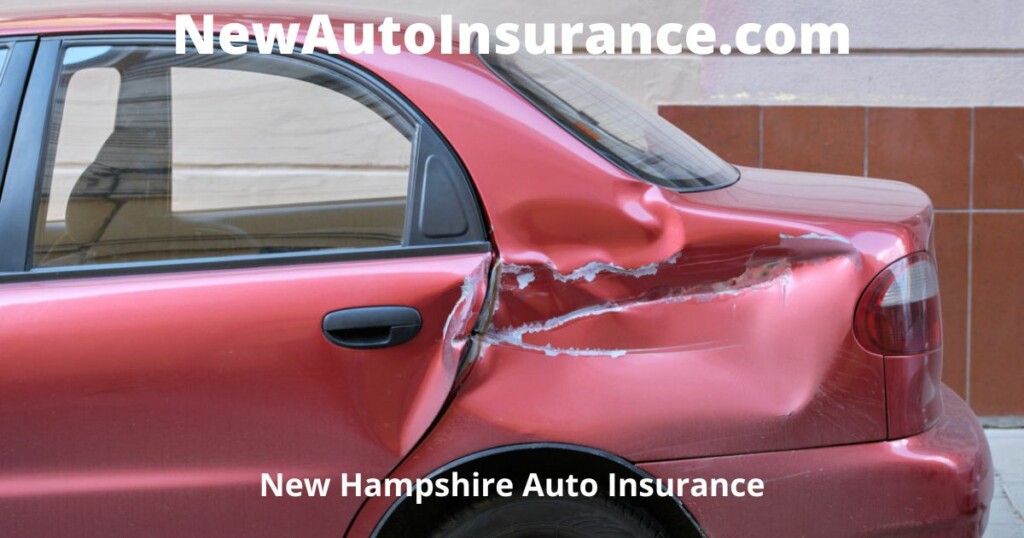
New Hampshire is different from other states as you are not required to get insurance, although there are exceptions. Regardless, it’s best to be prepared, so to answer the question, “Do you need auto insurance in New Hampshire?” read more.
Is Auto Insurance Necessary in New Hampshire?
The official motto of New Hampshire is “Live free or die.” Is it any surprise that New Hampshire does not require vehicle insurance? When driving in the state of New Hampshire without insurance, you must show proof that you have enough money to meet the financial responsibility requirements.
In the event of an accident, you are still liable for any personal harm or property damage. You could be arrested and required to pay monetary damages. Even if you are not at fault, defending yourself in court costs money. Auto insurance in NH protects you from these circumstances.
If you fail to pay the other party’s due expenditures for the accident, your license may be suspended. Without insurance, you are also liable for auto repairs. You’ll also have to pay for a rental if you require one. Naturally, you want to be insured, so you don’t have to spend out of pocket.
The New Hampshire Department of Safety recommends that all car owners have liability and property damage insurance on their website.
Proof of Insurance
According to Thehartford.com, proof of insurance may be required. You must produce proof of insurance in the following situations. Remember, this is not a complete list of conditions requiring proof of insurance.
- Those with a DWI on their record must file evidence of insurance for three years—longer proof of insurance requirements for anyone convicted of DUIs.
- Certain convictions demand evidence of insurance—for example, two charges of Reckless Operation.
- Uninsured drivers who cause an accident must file proof of insurance for three years. You can expect an extension in it in some circumstances. When a driver defaults on a payment agreement or is sued, an extension may be granted.
A Driver Record Report can tell you if you need to file proof of insurance. To provide proof of insurance, fill out the SR-22 form. This form ensures you have insurance for the next three years.
At the very least, you must acquire a liability plan. To file proof of insurance, you’ll need to speak with an insurance representative.
Contact the Bureau of Financial Responsibility to find out if you are exempt from filing evidence of insurance. Then, ask them to check your record.

Liability Coverage
Liability Coverage pays for losses you are legally liable to pay and it does not cover damage to your car.
If you choose to get liability insurance, you must meet the following minimums in the event of an accident:
- $25,000 for each person injured or killed
- $50,000 for two or more injured people
- $25,000 for damage
What’s Covered in New Hampshire?
In New Hampshire, you can buy the following forms of auto insurance:
- Auto Liability Coverage – This covers charges incurred as a result of your fault. It will even pay for a lawyer. There are two forms of liability coverage: physical injury and property damage. They do what they say. The first covers bodily injury, while the second covers damage to other people’s property.
- Insurance for bodily injury caused by an uninsured or underinsured motorcycle rider in the event of an accident.
- Medical Payments Coverage – This covers your bills regardless of wrongdoing. It only covers charges for three years after an injury.
- This coverage covers your auto damage charges in the event of a collision with another vehicle or object.
- Comprehensive Coverage – This plan covers any damage to your car other than an accident, theft, hail, or fire.
- Towing and Labor — This plan pays for towing and roadside repairs if your automobile breaks down.
If you acquire Auto Insurance in New Hampshire, you must also obtain Medical Payments Coverage and Uninsured Motorists Coverage. Unless your loan provider demands it, you are not necessary to accept Collision or Comprehensive Coverage.
Get Coverage
Even though automobile insurance is not necessary for New Hampshire, it is usually a good idea to carry it. You never know what could happen, and auto insurance will keep you out of debt. Liability insurance is the minimal minimum, while most people prefer collision or comprehensive coverage.
Even if you don’t own a car, non-owner insurance may be beneficial if you plan to borrow the car from another person. Overall, there are many possibilities, and you should shop around to discover the best plan for your needs.
Click here to learn more about auto insurance.